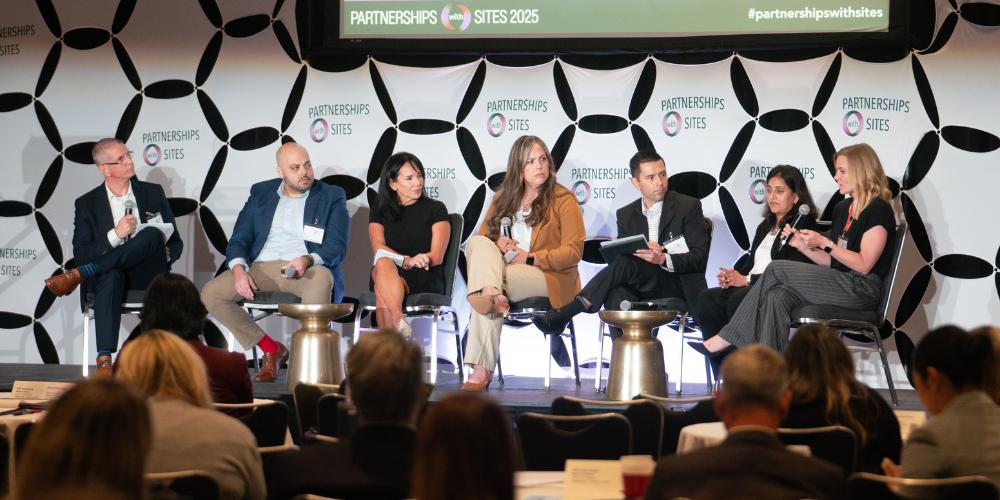How the Henry Ford Health System Integrated Clinical Trials into Clinical Care
The Henry Ford Health System has prioritized clinical trials across their entire system to expand their clinical research. They accomplished this by utilizing a three-step strategy including centralizing clinical trial activity, directing funds and motivating clinicians. Jennifer Levy, Vice President, Education, Henry Ford Health System, David Lanfear, MD, VP Clinical and Translational Research, Henry Ford Health System, and Donna O’Brien, National Advisor, Manatt Health, describe how they worked together to achieve this. This article captures their presentation from the CRAACO: Clinical Research as a Care Option conference that took place on May 22, 2023.

The background of Henry Ford Health
The Henry Ford Health System wanted to strengthen their translational research. It serves a large, diverse population in southeast Michigan, with five hospitals, 250 locations and over 6,000 physicians and researchers.
During COVID, when many primary care physicians were engaged in research, Dr Lanfear and Ms Levy realized there was a lack of culture around supporting research across the organization. “The largest issue was that our clinical trial operations were very decentralized,” said Ms Levy. “Essentially, each department was doing their own clinical trial operations.”
Henry Ford Health has a trusted relationship with a large and extremely diverse patient population, and has a population health and health equity focus. Research was a crucial piece of that.
The organization began working with Ms O’Brien to start the process and commissioned an assessment on where research sits on the translational science spectrum. That assessment identified that clinical trials were a barrier to translation, so the organization embarked on a journey to assess, restructure, and invest so clinical trials can be more effectively embedded into clinical care.
The goals
“Being able to do cutting-edge research is an important part of recruitment and retention, as well as building our service lines, whether it’s cancer, neuroscience or cardiology across the system,” said Ms Levy.
The goals included: to expand practice-changing care for more patients, become more competitive for externally sponsored grants, enable further recruitment and long-term retention of clinician scientists, achieve an NCI Comprehensive Cancer Center designation and reduce organizational tension created by an inefficient infrastructure, amongst others.
What would be required to make CRAACO a reality
Working with Ms O’Brien solidified several recommendations:
The necessary structure and systems would have to be focused on governance, organization and finance. That included promoting a new VP of clinical research to make trials a focus. Henry Ford Health needed to have a high-performance and centralized infrastructure, to avoid the recurring problem that one person was responsible for strong clinical trial infrastructure. Finally, there needed to be a culture of clinical and translational research development. That included putting resources and structures in place that supported clinical investigators and research staff.
Beginning the change process
One of Ms O’Brien’s tenets is the need to include executive leadership. In this case, the CMO and Chief Academic Officer were the sponsors of this change. Finance engagement on ROI was critical and it was from the top levels: both the CEO and CFO knew there was investment needed upfront.
Ms Levy, Dr Lanfear and Ms O’Brien also worked to engage trial stakeholders to form an advisory committee and used a series of surveys to both engage operations and investigators and learn more about the current functions of research.
The reorganization process included creating a central office for clinical trials, and a new medical director for that office. The organization decided to outsource operational functions to avoid internal stress, and having centralized support for regulatory requirements reduced the burden for individual departments.
The organization overcame challenges with an institution-wide CTMS, by making it as easy a transition as possible for coordinators and investigators and emphasizing the downstream positives. Dr Lanfear described how they are working through changes in job descriptions and pay scale through HR and budget adjustments, and are assuaging fears that a shift to more research would impact people’s roles negatively. In fact, more research means more roles will be required.
Lessons learned
The first lesson was just how valuable data was. When all functions were decentralized, there was no way of knowing how much money was spent on a trial, how many patients were in trials and how many physicians were undertaking administrative duties. By centralizing the process and tracking everything, Henry Ford Health is able to more easily allocate budget for trials, keep up with contracts and adequately staff their organization.
The second lesson was not to make incremental change when greater organizational change is needed to achieve significant clinical trial growth. For some areas, bigger and more holistic solutions are required, just as there are some problems that can be tackled with smaller adjustments.
The third lesson was about the level of buy-in and investment needed. Leadership needs to be on-board for any change. The front lines of care and research must be informed and kept abreast. Any electronic/software system adoption must be examined with a multi-year horizon in mind. “We need to stop technology from being the problem,” said Dr Lanfear.
Ultimately, there are no shortcuts to sustained, integrated research. “You need everyone on board to stick to the plan. It’s a process,” said Ms O’Brien.
To hear an update from Dr Lanfear on how the reorganization is going a year later, click here







